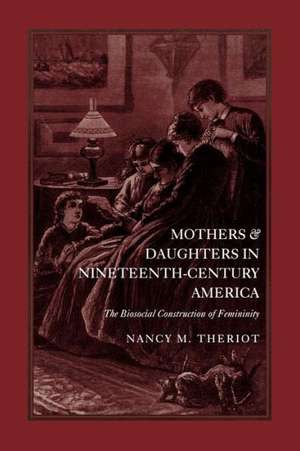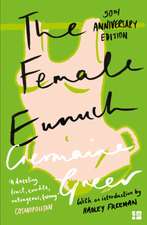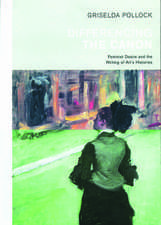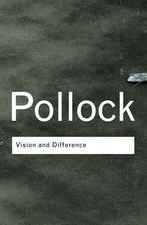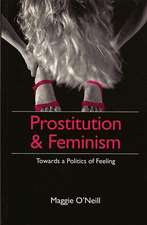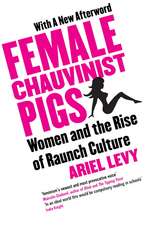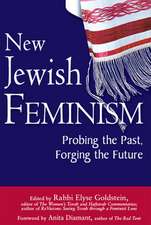Mothers and Daughters in 19c..-Pa
Autor Nancy Therioten Limba Engleză Paperback – 8 noi 1995
The feminine script of early nineteenth century centered on women's role as patient, long-suffering mothers. By mid-century, however, their daughters faced a world very different in social and economic options and in the physical experiences surrounding their bodies. In this groundbreaking study, Nancy Theriot turns to social and medical history, developmental psychology, and feminist theory to explain the fundamental shift in women's concepts of femininity and gender identity during the course of the century -- from an ideal suffering womanhood to emphasis on female control of physical self.
Theriot's first chapter proposes a methodological shift that expands the interdisciplinary horizons of women's history. She argues that social psychological theories, recent work in literary criticism, and new philosophical work on subjectivities can provide helpful lenses for viewing mothers and children and for connecting socioeconomic change and ideological change. She recommends that women's historians take bolder steps to historicize the female body by making use of the theoretical insights of feminist philosophers, literary critics, and anthropologists.
Within this methodological perspective, Theriot reads medical texts and woman- authored advice literature and autobiographies. She relates the early nineteenth-century notion of "true womanhood" to the socioeconomic and somatic realities of middle-class women's lives, particularly to their experience of the new male obstetrics. The generation of women born early in the century, in a close mother/daughter world, taught theirdaughters the feminine script by word and action. Their daughters, however, the first generation to benefit greatly from professional medicine, had less reason than their mothers to associate womanhood with pain and suffering. The new concept of femininity they created incorporated maternal teaching but altered it to make meaningful their own very different experience.
This provocative study applies interdisciplinary methodology to new and long-standing questions in women's history and invites women's historians to explore alternative explanatory frameworks.
Preț: 191.19 lei
Nou
36.59€ • 38.06$ • 30.21£
Carte tipărită la comandă
Livrare economică 14-28 aprilie
Specificații
ISBN-10: 0813108586
Pagini: 240
Dimensiuni: 152 x 228 x 15 mm
Greutate: 0.38 kg
Ediția:Revised
Editura: University Press of Kentucky
